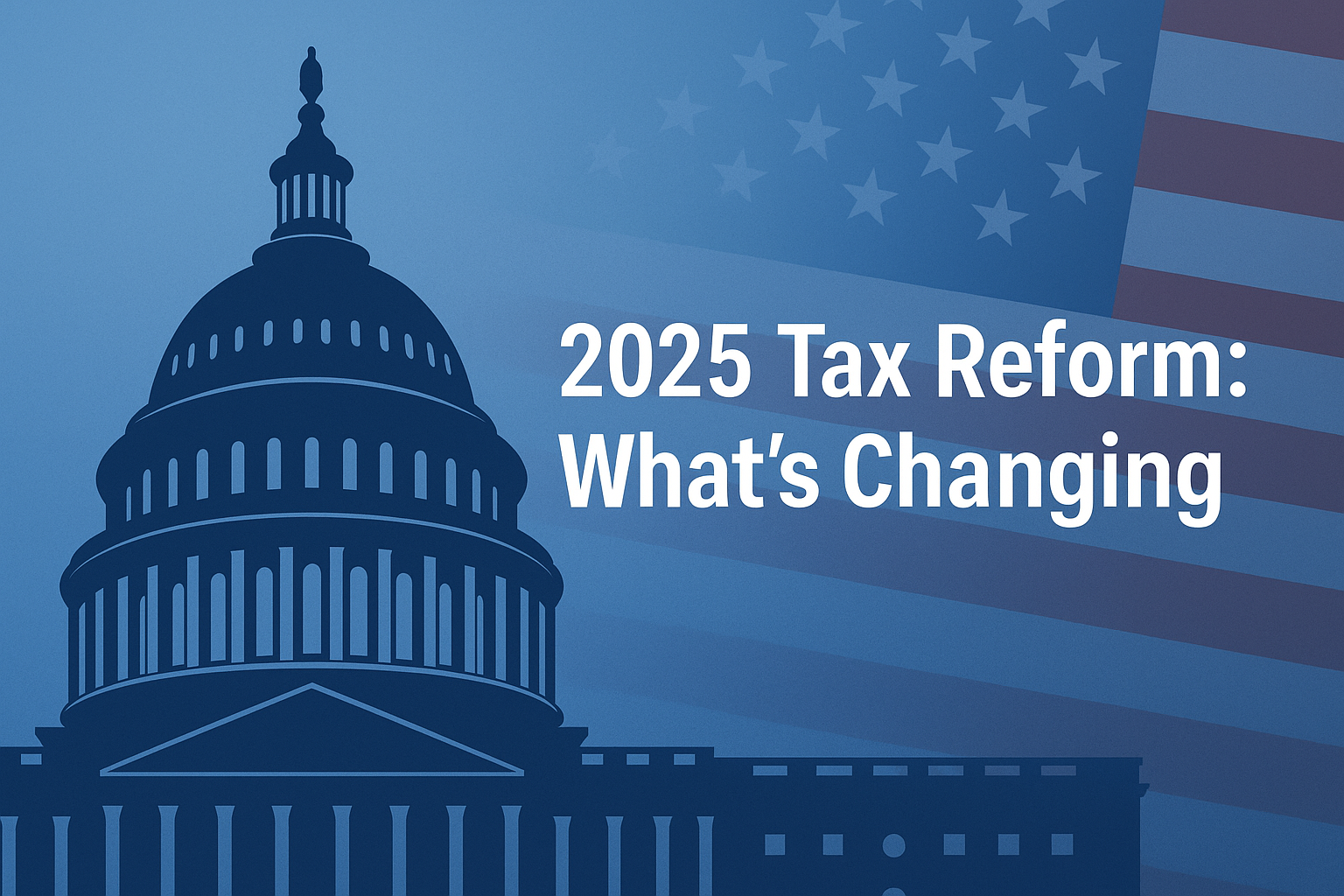The U.S. Senate has passed a major 2025 tax reform package known as the “One Big Beautiful Bill” (OBBB). If enacted, it would extend key provisions of the Tax Cuts and Jobs Act (TCJA), increase popular deductions, and introduce new tax breaks for working Americans and seniors. Here’s what’s inside and how it could impact individuals and businesses.

Senate Passage and Legislative Background
The U.S. Senate passed its version of the One Big Beautiful Bill on July 1 by a narrow vote of 51 to 50, with Vice President J.D. Vance casting the tiebreaker. The bill closely mirrors the version passed by the U.S. House of Representatives in May and is now back in the House for final consideration.
At its core, the legislation includes extensions of key TCJA provisions currently set to expire on December 31, 2025, along with several new and enhanced tax breaks.
New Tax Breaks for Individuals
Both the House and Senate bills align with campaign promises from President Trump to reduce the tax burden on workers:
- Tip and Overtime Income Exemption: Certain tips and overtime pay would be exempt from income tax for eligible taxpayers. Specific eligibility criteria will be defined if the bill becomes law.
- Senior Deduction for Social Security Recipients: While full elimination of tax on Social Security benefits did not make it into either version of the bill, the Senate version includes a $6,000 deduction for those age 65 and older from 2025 through 2028, for taxpayers with modified adjusted gross income (MAGI) under $75,000 ($150,000 for married couples filing jointly). The House version proposes a similar deduction, but caps it at $4,000.
SALT Deduction Cap Changes in 2025 Tax Bill
A long-standing point of contention, the state and local tax (SALT) deduction cap, remains a major focus of the bill:
- Current law: Limits SALT deductions to $10,000, as enacted by the TCJA.
- Senate Proposal:
- Increases the cap to $40,000 for 2025
- Adds a 1% annual increase through 2029
- Reverts back to $10,000 in 2030
- Phases out the deduction for individuals earning over $500,000 in 2025, with the income threshold increasing 1% annually through 2029
- House Proposal: Also increases the cap to $40,000, but proposes to make the change permanent for those earning under $500,000.
Child Tax Credit (CTC) Updates Under the Senate Bill
The current Child Tax Credit of $2,000 per child is set to drop to $1,000 after 2025, and key eligibility requirements would loosen unless Congress acts.
Both bills aim to enhance and extend the CTC, with differences in structure:
- Senate Version:
- Makes the CTC permanent
- Increases it to $2,200 per child, indexed for inflation
- Requires Social Security Numbers (SSNs) for both the child and the parent claiming the credit
- House Version:
- Increases CTC to $2,500 per child for 2025–2028
- Retains the higher income phaseout thresholds
- Requires SSNs for both the child and the taxpayer
- Reverts to $2,000 per child after 2028, with annual inflation adjustments
What’s Next?
The proposed legislation is now back in the House of Representatives for further debate and a final vote. President Trump has expressed urgency in getting the bill signed into law by July 4, though it remains uncertain whether the House will meet that timeline.
What This Means for You
This bill includes significant potential changes for taxpayers, including increased deductions, credits, and special provisions for seniors and workers. While not yet law, it could have a major impact on your 2025 tax planning and beyond.
Our team is closely tracking the bill’s progress. Contact our office if you have questions or want to prepare for possible changes that may affect your tax return.
© 2025
